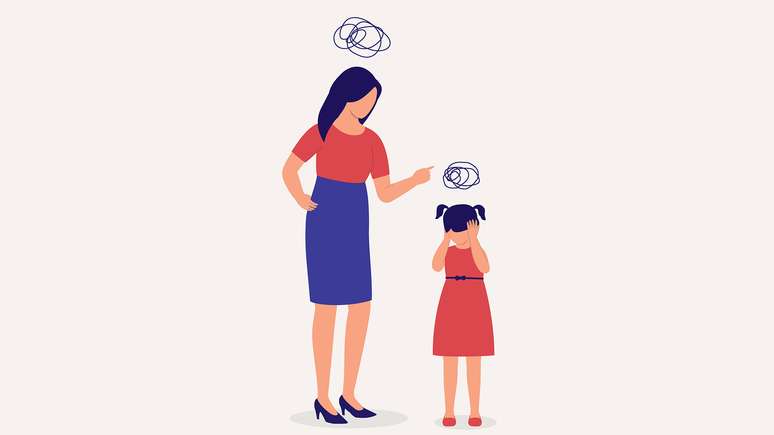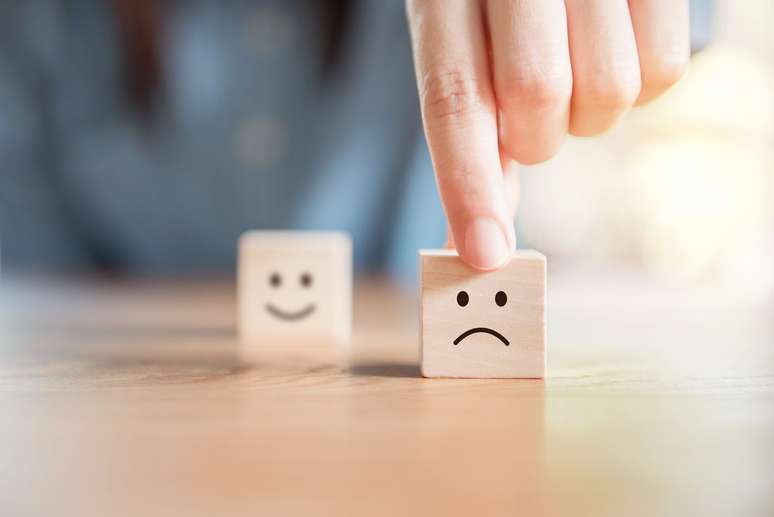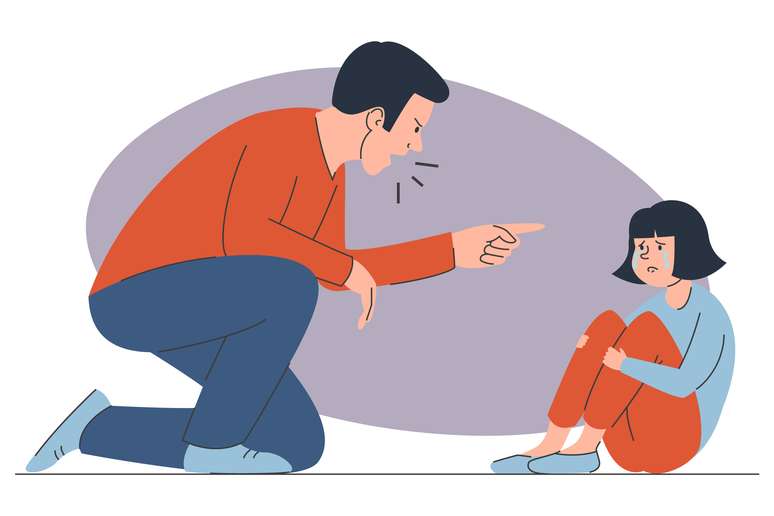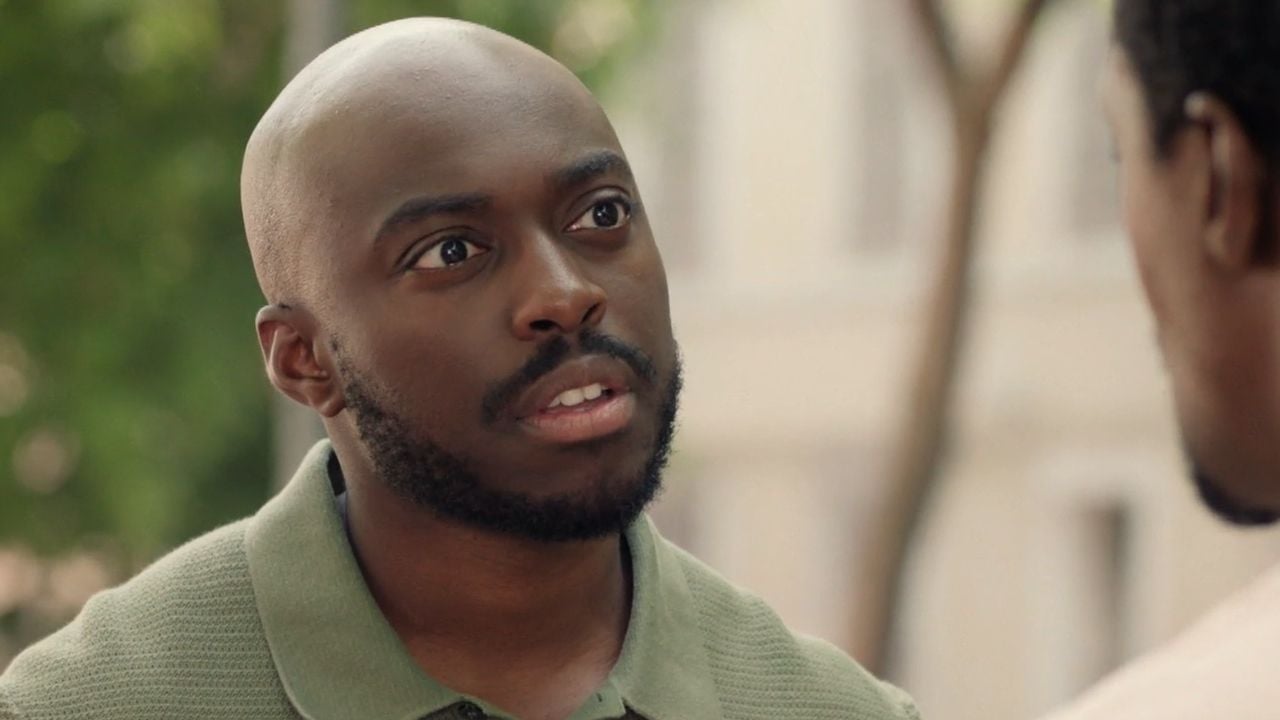Over 30% of parents and carers believe that hitting and shouting are necessary measures to educate children. The effect, according to experts, is the opposite
Several studies have already shown that the use of violence, both physical and emotional, in the education of children involves negative results, which can reverberate forever in the lives of children. However, there are many parents and healthcare professionals who believe that yelling and spanking are necessary for education: over 30%, according to the PIPAS – Early Childhood for Healthy Adults* project.
According to data from this survey, which evaluated different aspects of early childhood, the city of Porto Velho, in Rondônia, has the highest rate of adults who declare using punitive discipline in Brazil: 49% of parents and guardians have admitted that I think spanking is important. Rio de Janeiro and Porto Alegre stand out as the capitals that use shouting the most, with 40% and 39% respectively.
“The use of violence in our country is still a very alarming reality”says Marina Fragata, director of Applied Knowledge of the Maria Cecília Souto Vidigal Foundation (FMCSV) .
For her, the permanence of punitive practices against children is a social and multi-causal phenomenon, ranging from cultural references to a lack of information. “What the evidence shows is this This type of behavior has an intergenerational naturethat is, sometimes, that person who has suffered violence, even if he does not agree with the punitive practice, to a certain extent, can replicate it due to lack of paths”, says Mariana.
A difficult cycle to break
There is more and more scientific evidence showing that physical or emotional punishment not only does not help, but also causes serious damage that is difficult to reverse. However, PIPAS numbers show that the practice will not be eliminated anytime soon.
“Although there is already a lot of knowledge and even some public policies, It’s an age-old habit that’s hard to break.“, says psychologist Bianca Sollero, author of the book Stop wondering what your child will be (Literary books). “There are many fathers and mothers who already know that they should not hit or punish, but they themselves, from time to time, fall into this. primitive alternative with an immature, impulsive and irrational gesture”to describe.
“”
Breaking this deep-rooted cycle is a task that demands a lot, not only from fathers and mothers, but from society as a whole.
Adults need to recognize and understand that they are making mistakes so they can correct their course. This, according to Bianca, requires a lot of self-knowledge, self-observation and a real commitment to transformation, but The task is not simple: it takes much more than simple goodwill.
“If we talk about the most vulnerable part of the population, the guarantee of basic health and educational conditions is part of the transformation of this behavior, because, in the midst of chaos and lack of dignity, there is not the slightest emotional control to consider beating them and punish him”, he exemplifies.
“If we talk about the middle and upper classes, part of the negotiation will be a transformation that includes, first of all, the family as the main partner in the labor market. As long as we live in a society of fathers and mothers who are workaholics or affected by the unhealthy standardism of what it means to be successful today, There is less space to take care of educational connections and much less patience to commit to a more modern, sustainable and efficient way of doing educationr – which is necessarily respectful,” he emphasizes.

The effects of violence
As we know, punishing with violence does not educate and causes not only physical but emotional wounds. “It is something that hurts the soul and marks the child’s history forever.even if unconsciously,” says Bianca.
“It’s as if this foments an internal atomic bomb. The more punishments, the more the child is ready to explode. Until it explodes, whether with increasingly difficult behavior in childhood, with attacks of depression and anxiety in adolescence, or even with compulsions of all forms in adult life“, explains the psychologist. The consequences are cruel.
Not to mention the reverberations of the practice: those who are hit are more likely to hit, and the cycle spreads from generation to generation. “These practices of physical punishment or threats to the child are predictors of other behaviors: he gets angry, hits his classmates, expresses defiant behavior. In fact, the use of violence causes the opposite effect of what is sought and what is expected when you educate” , says Marina.
“”
It is also very likely that this child will become aggressive, after all, this is the reality he is presented with from the beginning.
Marina Fragata recalls that, in addition to the PIPAS survey, the Núcleo Ciência pela Infância also released data on this topic and showed that 80% of people who commit violence against children are adults of reference: mothers, fathers and caregivers.
“This comes from that person who is in everyday life and on this mission of caring, protecting, loving, nurturing and setting boundaries,” she says. But what is it like for a child to realize that the person he loves most and on whom he depends is acting violently? As he grows up, he starts to do it seeing love and care with a distortion, believing that punishment, punishment, screaming and aggression are common in a relationship: a danger to adult life.
Impacts on child development
These early years of life are a window of opportunity. This is when the child’s brain is developing very rapidly, which makes violence an even more significant risk. “Today we know that a child’s development is not based solely on his genetics, as was believed decades ago. The interaction with the environment, the experiences and experiences lived in those early years have a great impact,” explains Marina.
According to her, exposure to violence generates an activation of hormones, such as cortisol and adrenaline, capable of destroying synapses, which are the connections between brain cells that allow people to develop skills, such as learning to speak, walking, writing and so on. It’s called toxic stress.
“Although the child’s development process should take place to its full potential, violence is a harmful factor. This impact can hinder the transition from the present to the future, because the basis of the brain, functions and abilities (including emotional) that are created at this stage is essential for all of life,” he describes.

Also harmful to self-esteem
Psychologist Bianca also describes physical punishment as silence. According to her, from that moment on, the child understands that he is not welcome or that he does not deserve to express himself. On top of all the impact and suffering, being beaten or punished doesn’t teach. “If I make a mistake and crash the car, I will have the natural consequence of being without it for a week. If a child makes a mistake and ruins something, for example, he can help him repair it and clean it, but if he only receives scolding, insults and punishments, this is what will he teach?”, he asks.
For her, learning comes from respectful guidance, which is not synonymous with permissivenessbut it’s about managing consistent consequences whenever necessary.
Adults without self-confidence and submissive
Another result of punishment is the formation of educated adults to blindly obey or even lie and hide their mistakes instead of facing them. “In the 21st century, when we discuss the importance of creativity and when we are invaded by virtuality and artificial intelligence, physical punishments only contribute to children grow increasingly fearful, less confident and more blocked”underlines the psychologist.
That said, it is essential to transform this punitive education if we want to train more autonomous and creative individuals, capable of working with machines – and not for them.
Parents need help
In addition to continuing to talk about the topic, showing the negative effects of physical and emotional punishment, it is necessary to help parents do so put this transformation into practice.
“It is necessary to value the feeling of a mother or father when they use spanking or shouting as a means of their commitment to educating their child”, reflects Marina. “It is necessary to welcome this adult, support him and help him understand that this practice, in reality, does not help or favor his son” she adds.
For her, in addition to information, It is important to develop public policies . “We need to reinforce what we talk about affective or positive parenting, which is this process of interacting with children, using other strategies such as dialogue,” she says.
It becomes much easier, moreover, not to react violently when the caregiver understands, for example, that, during the “tantrum” phase, the child does not behave like this on purpose, but that it is part of the emotional crisis maturation process.
Furthermore, Marina underlines the importance of supporting this adult and helping him understand what he feels and how he can, through some strategies, reduce punitive practices and exchange them with dialogue, affective interaction, support for the child and bonding. “All this is much more effective not only for educating, but for build a closer relationship, which brings more satisfaction to both the adult and the childpromoting development and helping to build real connections,” he concludes.
* Survey of indicators on childhood in Brazil, carried out by the Ministry of Health and the Institute of Health (SES-SP), with the support of the Maria Cecília Souto Vidigal Foundation (FMCSV).
Source: Terra
Ben Stock is a lifestyle journalist and author at Gossipify. He writes about topics such as health, wellness, travel, food and home decor. He provides practical advice and inspiration to improve well-being, keeps readers up to date with latest lifestyle news and trends, known for his engaging writing style, in-depth analysis and unique perspectives.







